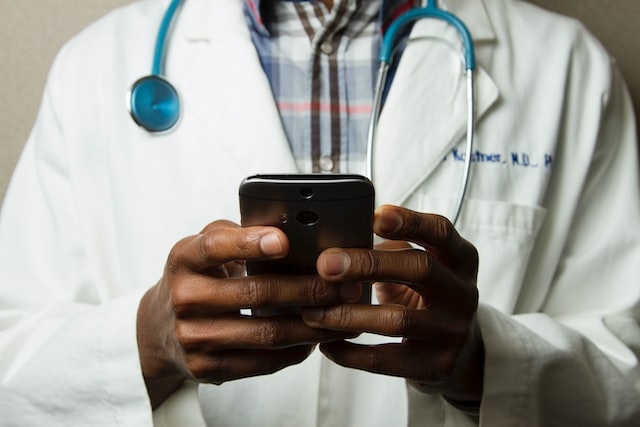Introduction: The Importance of Health Data Privacy
Your health data is personal and sensitive information. It includes information about your medical history, treatment plans, and test results. This information is often collected, stored, and shared by healthcare providers, insurance companies, and technology companies. With the rise of electronic health records and telemedicine, it’s more important than ever to understand how your health data is being used and protected. In this blog post, we’ll discuss the importance of health data privacy and provide tips on how to safeguard your information.
Understanding the Risks: Who Can Access Your Health Data?
Your health data can be accessed by a variety of parties, including healthcare providers, insurance companies, employers, and government agencies. In some cases, this information may also be shared with third-party companies, such as medical billing companies or data analytics firms. Additionally, there is a risk of data breaches, which can result in sensitive information being accessed by unauthorized parties. It’s important to understand who has access to your health data and for what purposes it’s being used. This information can typically be found in your healthcare provider’s privacy policy or by asking the provider directly.
How to Safeguard Your Health Data Privacy
There are several steps you can take to protect your health data privacy:
- Understand your rights: The Health Insurance Portability and Accountability Act (HIPAA) and the General Data Protection Regulation (GDPR) both provide individuals with certain rights regarding their health data. These include the right to access and receive a copy of your health information, the right to request that errors in your information be corrected, and the right to file a complaint if your rights are violated.
- Be selective about who you share your information with, and think carefully about who you share your health information with and why. Only share your information with trusted parties and be sure to read their privacy policies before sharing your information.
- Use secure methods of communication: If you communicate with your healthcare provider or insurance company online, be sure to use a secure, encrypted connection.
- Keep your personal information private: Be cautious about sharing personal information online, such as on social media, as this information can be used to access your health data.
The Role of Health Care Providers and Technology Companies in Protecting Your Privacy
Healthcare providers and technology companies have a responsibility to protect your health data privacy. This includes implementing appropriate security measures to protect against data breaches, ensuring that your information is only shared with authorized parties, and being transparent about how your information is used.
Staying Informed: Resources for Learning More About Health Data Privacy
To stay informed about health data privacy, you can consult the following resources:
- Government websites, such as the US Department of Health and Human Services and the European Commission, provide information about laws and regulations related to health data privacy.
- Privacy advocacy groups, such as the Center for Digital Democracy and the Privacy Rights Clearinghouse, provide information and resources about health data privacy.
- Healthcare providers and insurance companies often have information about their privacy practices on their websites.
Conclusion: The Importance of Taking Control of Your Health Data Privacy
Health data privacy is an important issue that affects us all. By understanding the risks and taking steps to safeguard your information, you can help protect your personal and sensitive information. Remember that you have rights regarding your health data and it’s important to stay informed about laws and regulations related to health data privacy.
It’s also important to be aware of any new technologies or trends that may affect your health data privacy. For example, the use of wearables, such as smartwatches and fitness trackers, can collect a significant amount of personal and health data. It’s important to understand what data these devices collect, who has access to this data, and how it’s being used. Additionally, the use of artificial intelligence and machine learning in healthcare is rapidly increasing. These technologies can analyze large amounts of health data, but it’s important to ensure that privacy and ethical considerations are taken into account.
Overall, protecting your health data privacy is a continuous process that requires staying informed, knowing your rights and being aware of the latest trends and technologies that may affect your data. At Jonda.io, we are dedicated to providing our customers with the best and most secure tools to store, share and analyze their data. We understand the importance of health data privacy and take the necessary steps to ensure that our customer’s data is protected.
It is important to protect your health data privacy, by knowing your rights and staying informed about laws and regulations related to health data privacy, you can help protect your personal and sensitive information. Remember, you are in control of your health data privacy, and it’s important to take active steps to safeguard it.

